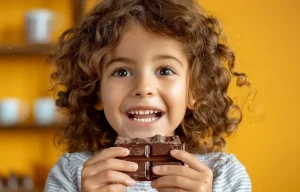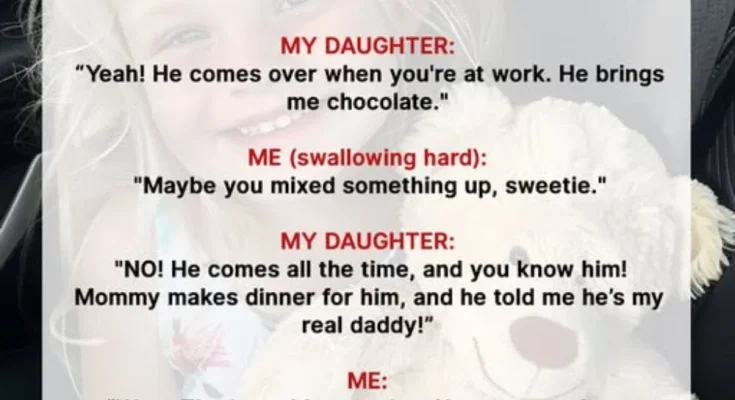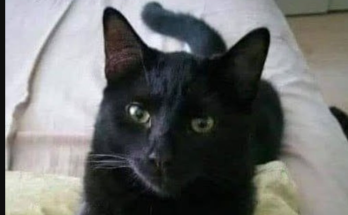Father’s Day is usually a simple holiday in our house: a handmade card, pancakes for breakfast, and a quiet family dinner. But this year, things took an unexpected turn when my 5-year-old daughter looked up at me with wide, innocent eyes and asked, “Can I invite my real dad to Father’s Day dinner?”
For a moment, I was speechless. My mind raced through a whirlwind of emotions—surprise, confusion, even a twinge of hurt. I’ve been raising her since she was a toddler, sharing every scraped knee, bedtime story, and giggle-filled morning. In my heart, I am her dad. But I realized that for her, “her real dad” meant her biological father—the one who shares a part of her life that I never can.
I knelt down and held her tiny hands. “Honey,” I said gently, “what makes you want him to come?”
She shrugged, smiling shyly. “I just want him to eat dinner with us. I love him too.”
Her words hit me harder than I expected. I realized she wasn’t trying to hurt me. She wasn’t comparing us or measuring love. She simply wanted to celebrate all the people who care about her. And honestly, isn’t that what Father’s Day should be about?

We had a long talk that evening. I explained that sometimes adults have complicated feelings, but the most important thing was that she felt safe and loved. We discussed ways we could invite her biological father respectfully, without making anyone feel uncomfortable. It was a lesson in empathy—for both of us.
As I prepared for that dinner, I thought a lot about what it means to be a dad. It’s not just about biology or shared DNA. It’s about showing up. It’s about patience, laughter, and teaching life lessons. It’s about being a steady presence, even when life gets messy. I realized that being her dad isn’t something I need to compete for; it’s a role I get to embrace fully.
The evening of Father’s Day arrived. We set the table, lit candles, and waited. Her biological father came, greeted us warmly, and joined our small celebration. Watching my daughter laugh and chatter with both of us in the same room filled me with an unexpected warmth. No tension, no jealousy—just love.

That day, I learned that blended families have unique challenges, but they also have unique joys. Children don’t see boundaries in the same way adults do. They see love, connection, and presence. And sometimes, letting go of pride and opening our hearts can make a celebration more meaningful than we ever imagined.
Father’s Day ended with hugs, bedtime stories, and a quiet reflection. My daughter went to sleep smiling, and I went to bed feeling grateful—not for the perfect holiday, but for the imperfect, messy, loving family we are. Because in the end, being a dad isn’t about who came first or who is “real.” It’s about being there, every single day, with love, patience, and an open heart.




